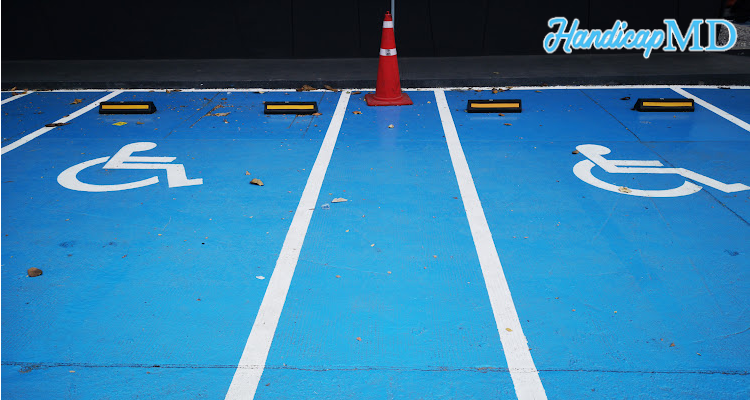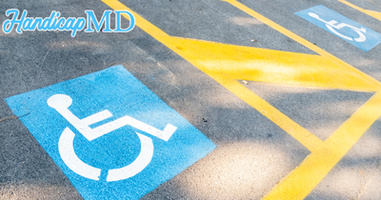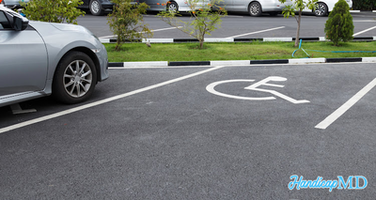
Myths vs. Facts: Debunking Common Misconceptions about Handicap Placards in Kentucky
Introduction
Handicap passes play a crucial role in providing accessibility and convenience to individuals with disabilities in Kentucky. However, there are numerous misconceptions surrounding these passes that can lead to confusion and misinformation. In this article, we will dive deep into the myths and facts surrounding handicap placards in Kentucky, shedding light on the truth and providing clarity. Whether you're a driver with a disability or someone who wants to be well-informed, this guide will equip you with accurate information to debunk these misconceptions.
Myths vs. Facts: Debunking Common Misconceptions about Handicap Placards in Kentucky
Myth: Handicap Placards are Only for Wheelchair Users
Fact: Disability Placards Are Not Limited to Wheelchair Users
Contrary to popular belief, disability passes are not exclusively reserved for individuals who use wheelchairs. These are intended to assist a wide range of individuals with disabilities, including those who have mobility challenges, chronic medical conditions, or difficulty walking long distances. The eligibility criteria encompass various medical conditions that might not be immediately visible, emphasizing the importance of accommodating diverse needs.
Myth: Handicap Placards Are Easy to Obtain Illegally
Fact: Stringent Application Process Ensures Legitimate Use
Some may believe that obtaining a handicap permit through fraudulent means is simple, but the reality is quite different. The application process for a handicap pass in Kentucky is designed to prevent misuse. Applicants need to provide medical documentation from a licensed healthcare professional, confirming their eligibility for the pass. This rigorous procedure ensures that only individuals who genuinely require the pass receive it, maintaining its integrity.
Myth: Handicap Placards Are Permanent Once Issued
Fact: Placards Have Expiry Dates for Renewal
Disability passes are not indefinite; they come with expiration dates. This requirement ensures that individuals regularly reassess their eligibility and medical condition. Placard holders must renew their passes as needed to continue using designated parking spaces and other privileges. By doing so, the system prevents outdated passes from being used improperly and allows for better allocation of accessible spaces.
Myth: Handicap Placards Are Valid Everywhere
Fact: Placard Validity Varies Between States
While disability passes offer accessibility benefits across the United States, it's important to note that their validity can differ from state to state. If you're traveling to a different state, it's essential to familiarize yourself with that state's rules and regulations regarding disability parking. While the general concept remains consistent, understanding specific variations will help you avoid any unintended violations.
Myth: Young People Can't Have Handicap Placards
Fact: Age Does Not Determine Eligibility
Handicap placard eligibility is determined by medical necessity, not age. Young individuals with disabilities can qualify for and benefit from these passes just as much as older individuals. Medical conditions affecting mobility, regardless of age, are the primary consideration when assessing eligibility. The goal is to provide equal access to those who require it, regardless of their age.
Myth: All Disabilities Are Visible
Fact: Many Disabilities are Invisible
A common misconception is that only visible disabilities warrant the use of disability passes. In reality, numerous disabilities and medical conditions are not immediately evident to others. Conditions such as heart conditions, chronic pain, and respiratory issues may not be visible, but they can significantly impact an individual's mobility. Disability passes aim to support individuals facing various challenges, whether visible or not.
FAQs (Frequently Asked Questions)
Can I Use Someone Else's Disability Permit?
No, permits are issued to a specific individual and are not transferable. These are assigned to individuals based on their medical condition, and using someone else's permit is considered misuse and could lead to penalties.
How Long Does It Take to Get a Disability Permit in Kentucky?
The processing time for a disability permit application in Kentucky can vary, but it typically takes a few weeks. It's advisable to apply well in advance to ensure you receive your permit when you need it. Once your permit is issued, be mindful of the expiration date to ensure timely renewal.
Can I Use My Disability Permit in Other States?
Yes, permits are generally recognized across the United States. However, it's important to familiarize yourself with the specific rules and regulations of the state you're visiting to ensure compliance.
What Should I Do If I Suspect Permit Misuse?
If you suspect someone is misusing a disability permit, you can report it to the relevant authorities. Permit misuse is taken seriously, and reporting it helps maintain the integrity of the system.
Can I Apply for a Temporary Disability Permit?
Yes, individuals with temporary disabilities that affect their mobility can apply for a temporary permit. The duration of the permit will be determined based on the expected duration of the disability.
Are Disability Spaces Only for Authorized Holders?
Yes, handicap-designated parking spaces are specifically reserved for individuals with disability permits. Parking in these spaces without a valid permit can result in fines and penalties.
Conclusion
Navigating the realm of handicap placards in Kentucky requires a clear understanding of the facts. Dispelling common myths surrounding these permits is essential for promoting accurate information and ensuring equal accessibility for all individuals with disabilities. Remember that the eligibility criteria are based on medical necessity, and the system is designed to prioritize the needs of those who genuinely require assistance. By debunking these misconceptions, we pave the way for a more inclusive and informed community.
.png)






